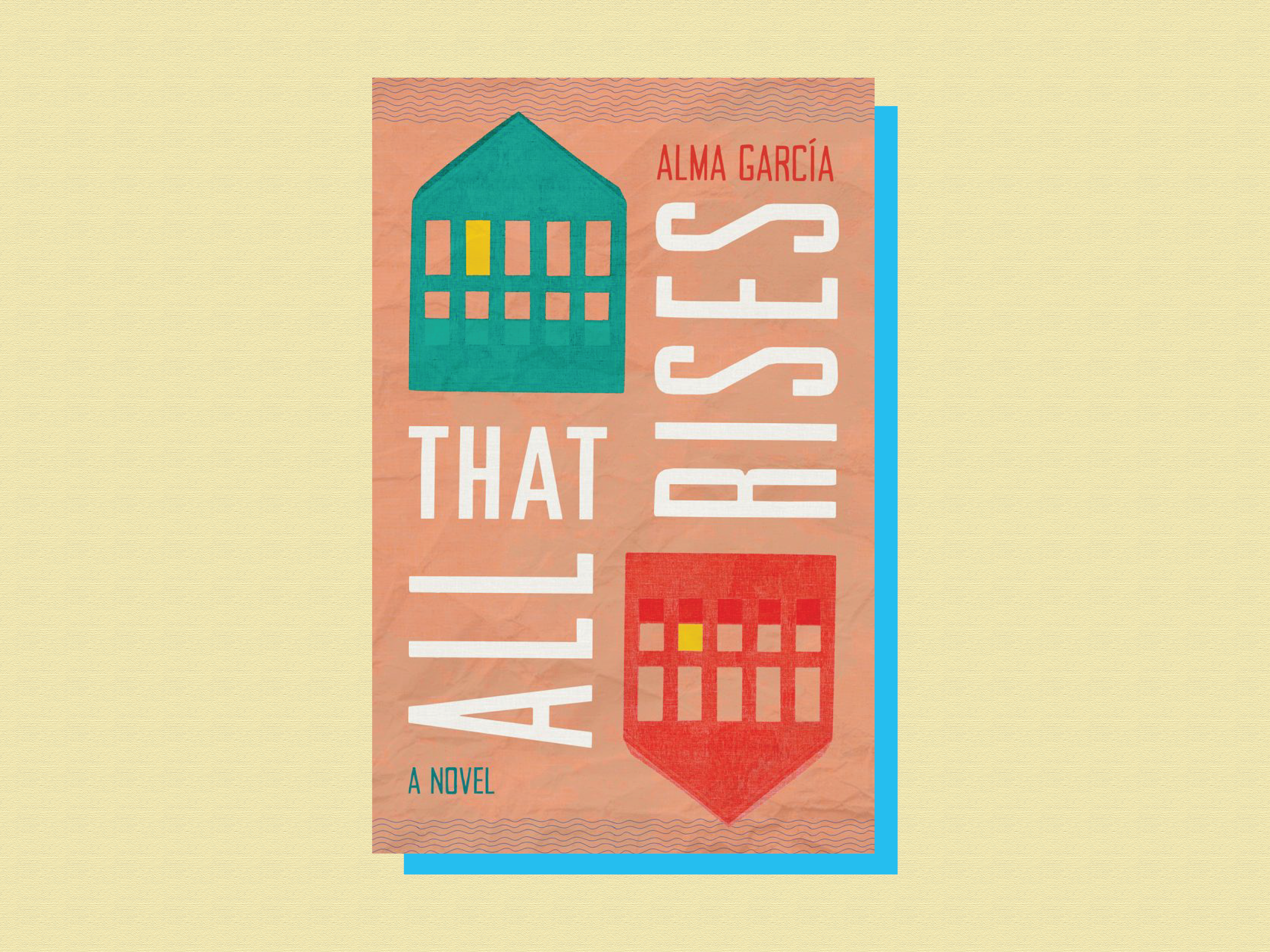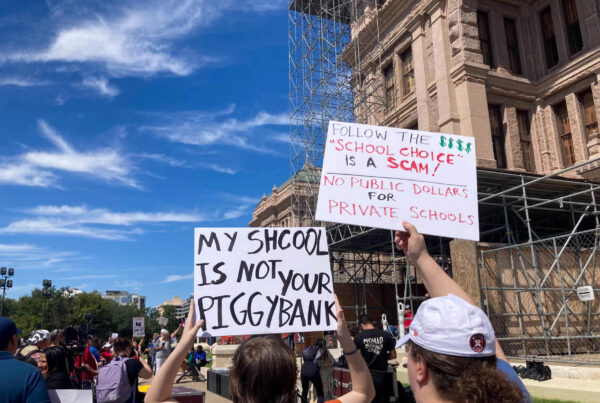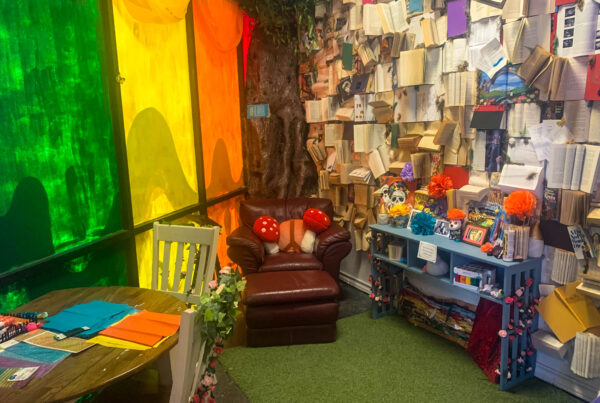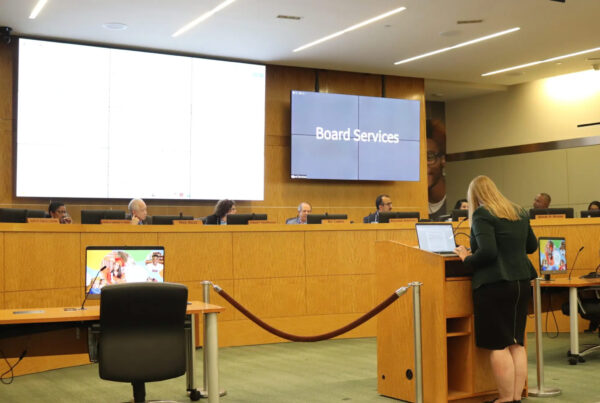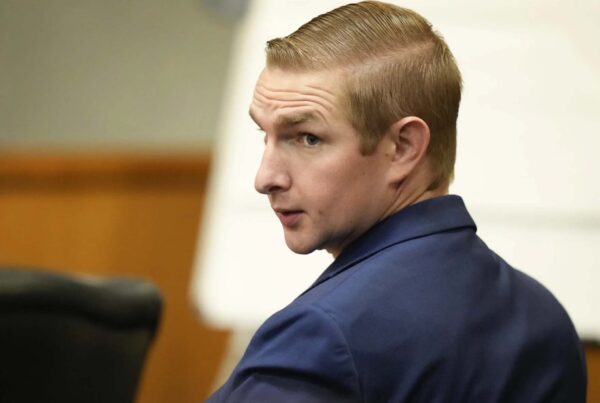The Texas- Mexican border has a rich literary history and over the years a wide range of authors have penned novels that take place in the sweeping hills and plains of the region. Some of these titles may be recognizable: “Aristotle and Dante Discover the Secrets of the Universe,” “No Country for Old Men” and the Blue Beetle Comics.
Now, a new novel joins their ranks. “All That Rises” follows the story of two families living next door to each other in El Paso, and how they deal with the secrets, lies and border politics that blur every boundary between them.
Alma García joined the Standard to share insights on the inspiration behind her book set in her hometown of El Paso. Listen to the interview above or read the transcript below.
This transcript has been edited lightly for clarity:
Texas Standard: For those who haven’t read your book yet, can you give a brief overview of what it’s about?
Alma García: Well, essentially, we have a story of two families from different backgrounds – one Anglo, one Mexican-American – who are living near each other in sort of uneasy peace until some of the people that work for them begin to notice ways that they are perhaps connected with each other.
And a number of things begin to unravel. One family loses a member who abandons them. The other family has a long lost family member return and all of these complications begin to sort of snowball as the secrets that are pinning them together become unfolded. And they are all very much a part of the history and the legacy of what makes up life in the borderlands.
What inspired you to write this book?
Many years ago, I wrote a short story that was my first published story. This was about 20 years ago. And it was a character who was living in this world, a you know, a Mexican-American working class gardener.
And once I wrote the story and it was published and it had received some attention, I felt like “oh, I can’t quite let go of this character. I am interested in spinning a world around him.” And I already understood that El Paso was sort of the background of where he was in his world. But as I began to spin a world around him, I began to understand that there was something bigger happening here.
This kind of was part of my understanding, that I wanted to write about people who had their lives in more than one world and more than one culture. These were people that I was not finding in books so much. And so as I began to create this world, I began to sort of understand that the world that they were in – El Paso itself – had a bigger role than I really understood.
And back 20 years ago, El Paso was not a world that was very much on the national consciousness. People may have understood it was on the border, but not much else.
But then things began to happen over time in the news, in the unfolding of history. And now everybody knows where El Paso is. And suddenly I had this very long story about how it morphed from a collection of stories into a novel. But suddenly it was about the kind of people that I grew up with – their feet in more than one culture set against the backdrop of a much larger context.
Well, you know, there are lots of places that are border places, but is there something unique about El Paso/Juárez in particular, that you really dig into in your book?
I grew up in El Paso and Albuquerque, and although I have not lived there for a long time, I maintain very strong ties to the area. And it’s a unique area.
I mean, there are absolutely many unique border communities along the Rio Grande there. But El Paso was the primary pass to the north. And I think the legacies of that history and what it means in terms of the way that people have moved through – have joined – in the area, and have been divided in the area. It just felt like that was the only place that a book of this scope, and it’s a pretty large scope book… It was the place to set the story.
How do you bring the region to life for readers who haven’t been there?
Well, I have been told that the landscape, the place, the sense of the land itself is a character unto itself in this book, because it shapes the desert area of this world, shapes the people who live in it. It’s an orientation point for them.
Some of the characters do temporarily leave the area and everything they experience and everything they understand about their world is measured against this land that is so dear to them and that they are connected to ancestrally going back generations. In some cases, some of the characters are newcomers, but still have a deep understanding of the world that they live in. So that was my orientation point.
Well, you mentioned your own connection to the place, but were there any personal experiences that influenced the storyline or maybe characters in the book?
I wouldn’t say that, other than just the absorption of that world into my bloodstream.
I mean, this is a work of fiction. It’s a work of pure fiction. Things happen to these characters that sometimes might raise eyebrows among readers, but this was just the story that the characters told to me, essentially, and that I channeled into this story. It’s based on my lived experience of what it’s like to live in a border community, of what it’s like to absorb the legacies of the cultures in the area – that understanding that’s hard to come by when you haven’t grown up inside of it, and when you feel like an insider outsider to the rest of the world, perhaps at times.
What are some of the key themes you’d like readers to take away after checking it out?
You know, I’m very interested in the idea of what borders mean in a larger sense. I mean, a border is a place that both divides and joins in. It’s a geopolitical gesture.
I would also say that I’m very interested in the idea of the meaning that history has for us today. It really is true that history repeats itself no matter how many times we think humanity has surely learned its lesson.
You know, the book is set in 2005. That’s when the border was first beginning to undergo some of the changes that have led to the realities that we see there today. Truly, we could have seen a lot of this coming had we known to look for it. But perhaps more importantly, even though truly this is a story about families who have entangled each other and what legacies they have inherited, it’s also about what it means to face the erasure of history.
That’s something we’re seeing with Mexican-American studies in certain places. When you forget that something happened to a certain group of people, it’s so much easier for that to happen again. Even though we imagine that certain things could never happen again. Ignorance can lead to some scary places.
I’m interested in in daylighting that phenomenon. It’s something that at least one of the characters considers very overtly… You know, there is a character in the novel who says “the problem with history is that by the time you see it, it’s repeating itself. It already happened.”


